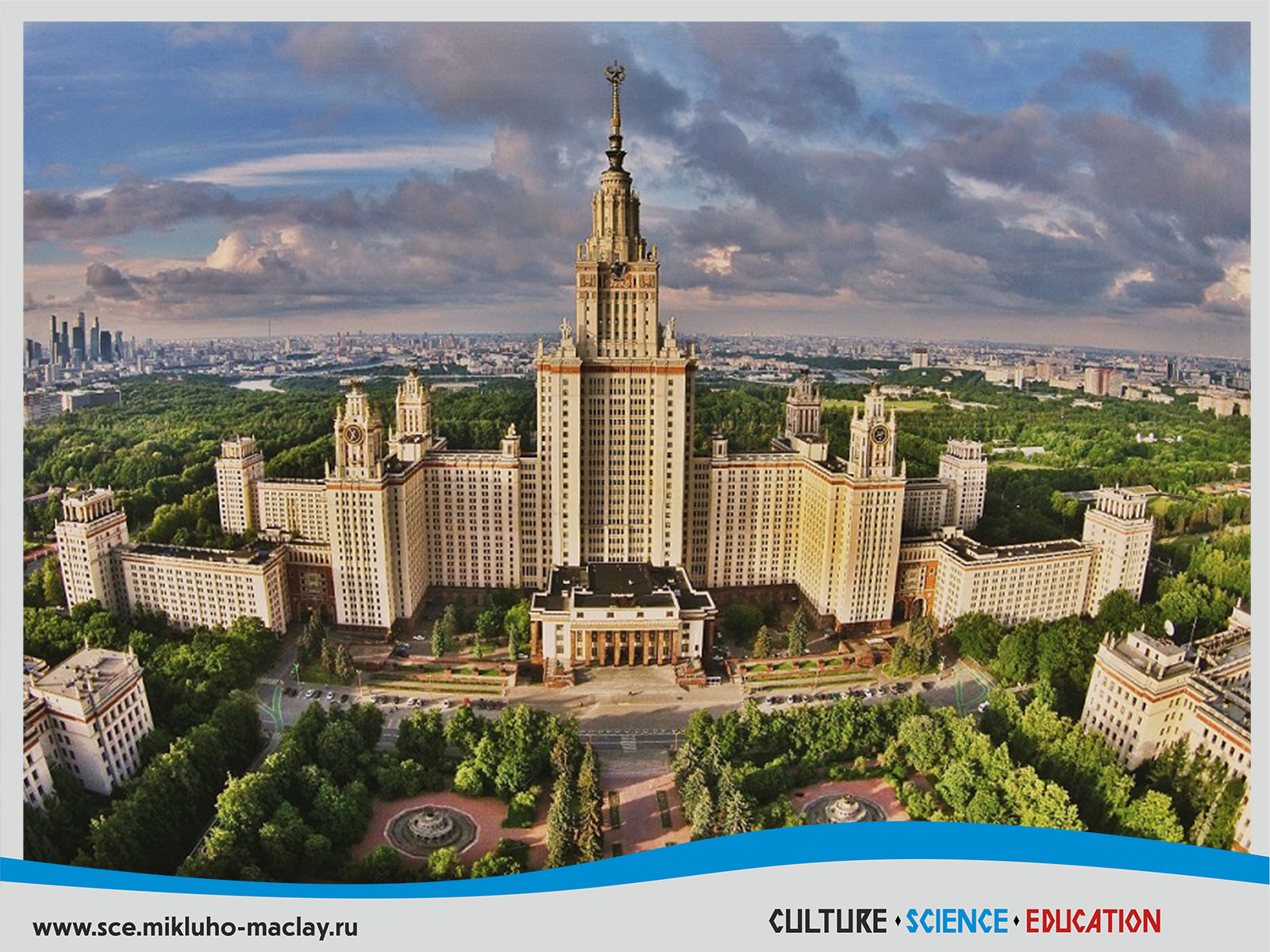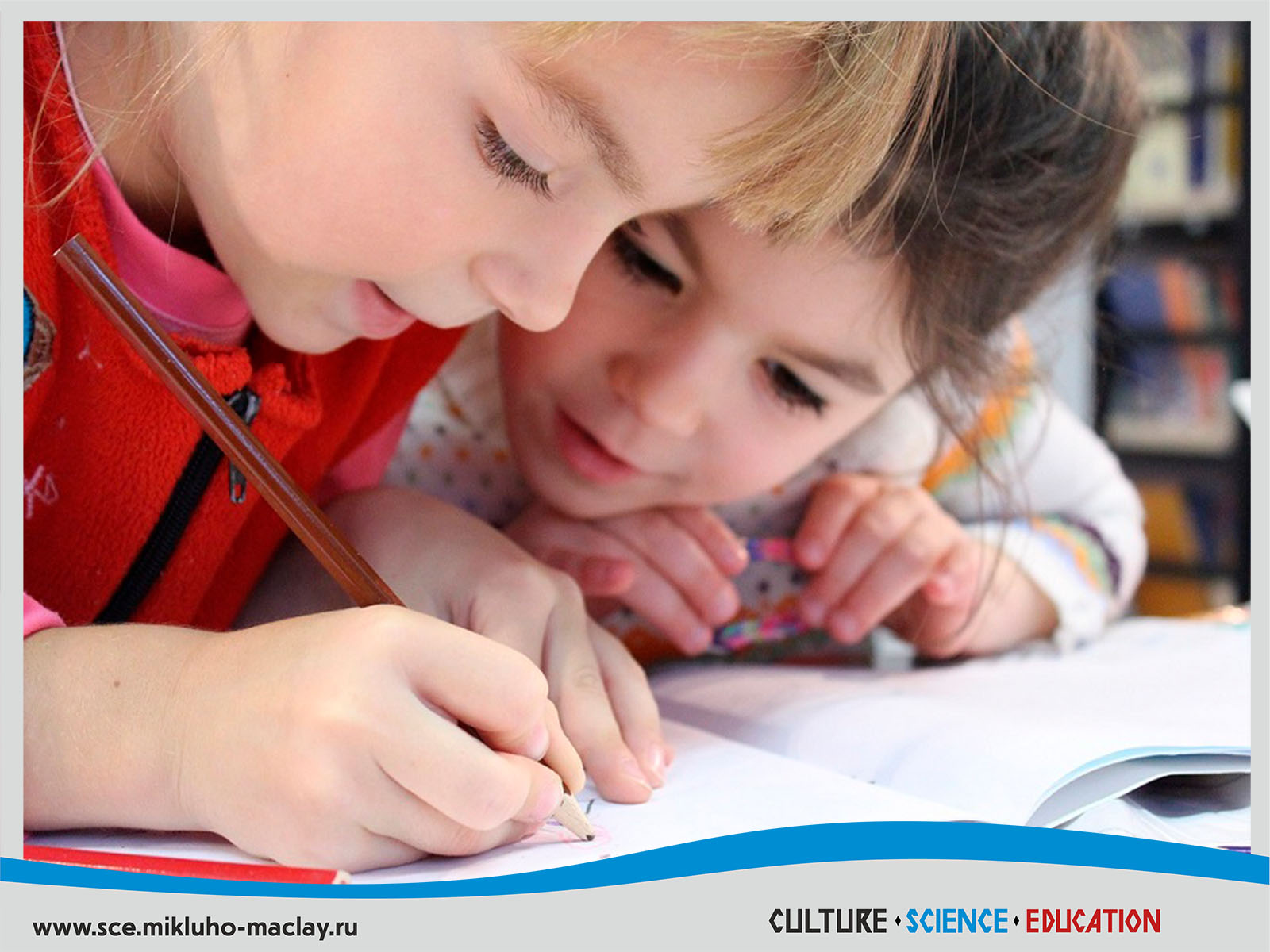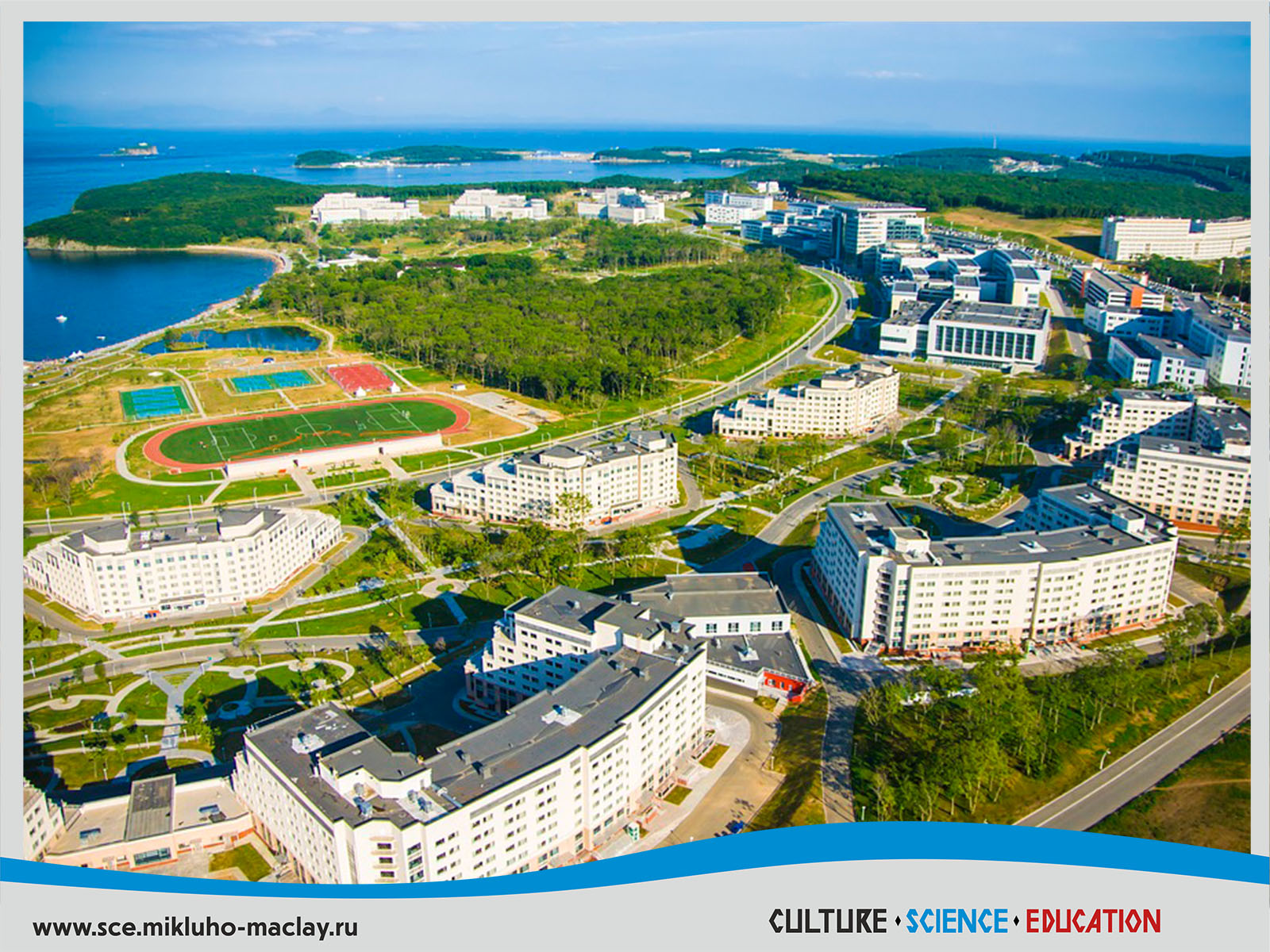EDUCATION IN RUSSIA
Russian education has long been famous for its quality both in Russia and abroad. There are more than 1000 higher educational institutions now in Russia. 20 Nobel laureates and more than 10 leaders of several Countries are the graduates of the Russian and Soviet Union Universities. For example, the current presidents of the Republic of Kazakhstan and the Republic of Azerbaijan got education in the territory of present-day Russia.
Russian education is appreciated abroad. 229 thousand Students from 160 countries study in Russia.

Moscow State University; Photo by _I.s.kopytov

Schoolchildrens; Photo by svklimkin

Far Eastern Federal University; Photo by DVFU
All the citizens of Russia have a right to get education. This right is guaranteed by the Constitution of the Russian Federation. The State education system of the Country includes pre-school, secondary, specialized secondary and higher education.
Pre-school institutions – kindergarten and nursery. Children there learn reading, writing and arithmetic. But pre-school education is not compulsory, children can get it at home.
Compulsory education is provided for children aged 6 or 7 to 17 or 18 years old.
The main link in the education system is the secondary education school, which prepares the young generation for life and work in modern society. There are different types of schools: secondary education schools, schools with advanced study of individual subjects, gymnasiums, lyceums, etc. Education is provided for free in most of them, but in some new types it is paid. Educational process of secondary education lasts 11 years and consists of primary, lower secondary and secondary schools. In the lower secondary school of secondary education pupils learn the fundamental laws of nature and society in the lessons of History, Algebra, Literature, Chemistry, Physics, etc.
Finishing the 9th grade, the pupils must pass the exams. Then they have a choice between the 10th grade of the secondary school and a specialized secondary or vocational school (College).
Those who have graduated from the secondary school, get an academic certificate of secondary education, which gives them a right to attend any higher education institution. It is necessary to pass the Unified State Exam, which is usually held in summer, in order to attend a University. The pupil must pass two compulsory exams (Russian language, Mathematics) and a profile exam of his own choice (Biology, Chemistry, Physics, History, etc.).
Higher education institutions are headed by Rectors, and the faculties – by Deans. In higher education institutions, students are trained in one or more specializations. The term of study is 4-6 years.
